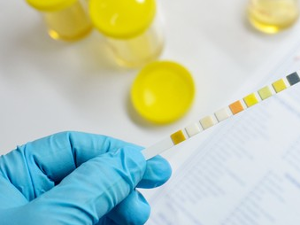Scientists in the UK have developed a simple urine test to determine whether or not people are eating healthy diets. For those looking to lose weight or deal with health problems, the study aims to provide more accurate reporting so doctors can better address their issues.
Too often, researchers claimed, when asked to record the food we eat on a daily basis, we tend to overestimate our fruit and vegetable consumption and downplay the unhealthy stuff, like donuts and cheeseburgers.
The urine test developed by researchers at Imperial College London (ICL), Newcastle University and Aberystwyth University, can get pretty specific about which foods you’re consumed. For instance, researchers found the test can reveal whether you have eaten red meat or fish and indicate whether you have eaten any fruit or vegetables. The test is sensitive enough to indicate some specific foods such as oranges, grapes and leafy green vegetables.
The test could also tell how much fat, sugar, fiber and protein participants you consumed, based on certain biological markers that are created when foods are broken down in the digestive system.
Participants were divided into four groups, each eating a specific diet ranging from healthy to unhealthy. The unhealthy group ate cereal with added sugar for breakfast, fried sausage and waffles for lunch, and fried cheeseburgers for dinner. The healthy group however, were given whole wheat toast and a boiled egg for breakfast, steamed salmon and vegetables for lunch, and grilled chicken with vegetables and whole wheat pasta for dinner. The diets lasted three days before urine samples were collected.
Researchers found the levels of 19 metabolites (the markers indicating the breakdown of food) were significantly higher in the healthiest of the four diets compared with the unhealthiest.
Professor Gary Frost, part of the Department of Medicine at Imperial and senior author of the study, told Live Science magazine: "A major weakness in all nutrition and diet studies is that we have no true measure of what people eat. We rely solely on people keeping logs of their daily diets -- but studies suggest around 60 per cent of people misreport what they eat to some extent. This test could be the first independent indicator of the quality of a person's diet -- and what they are really eating."
According to the research team, this is only the first step in the process, and they will further develop the test for more accurate reporting.
The study was published in the journal Lancet Diabetes and Endocrinology.
